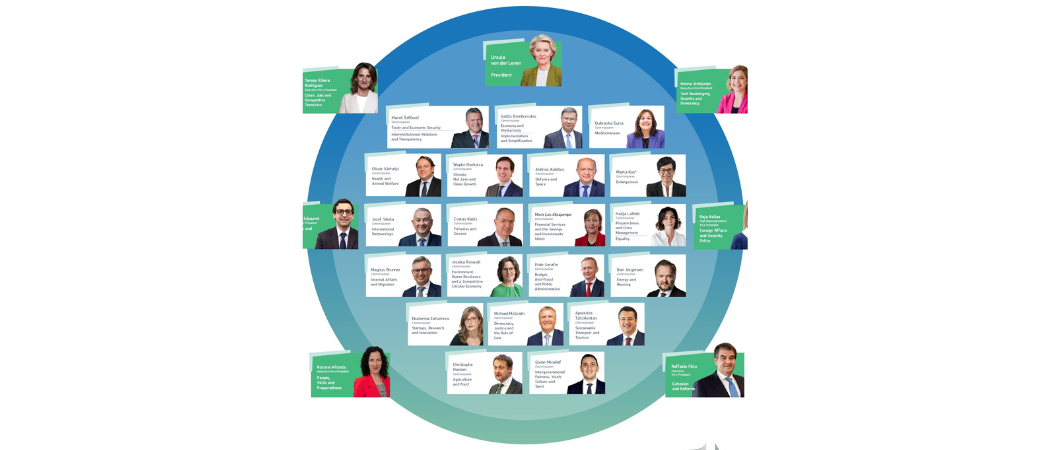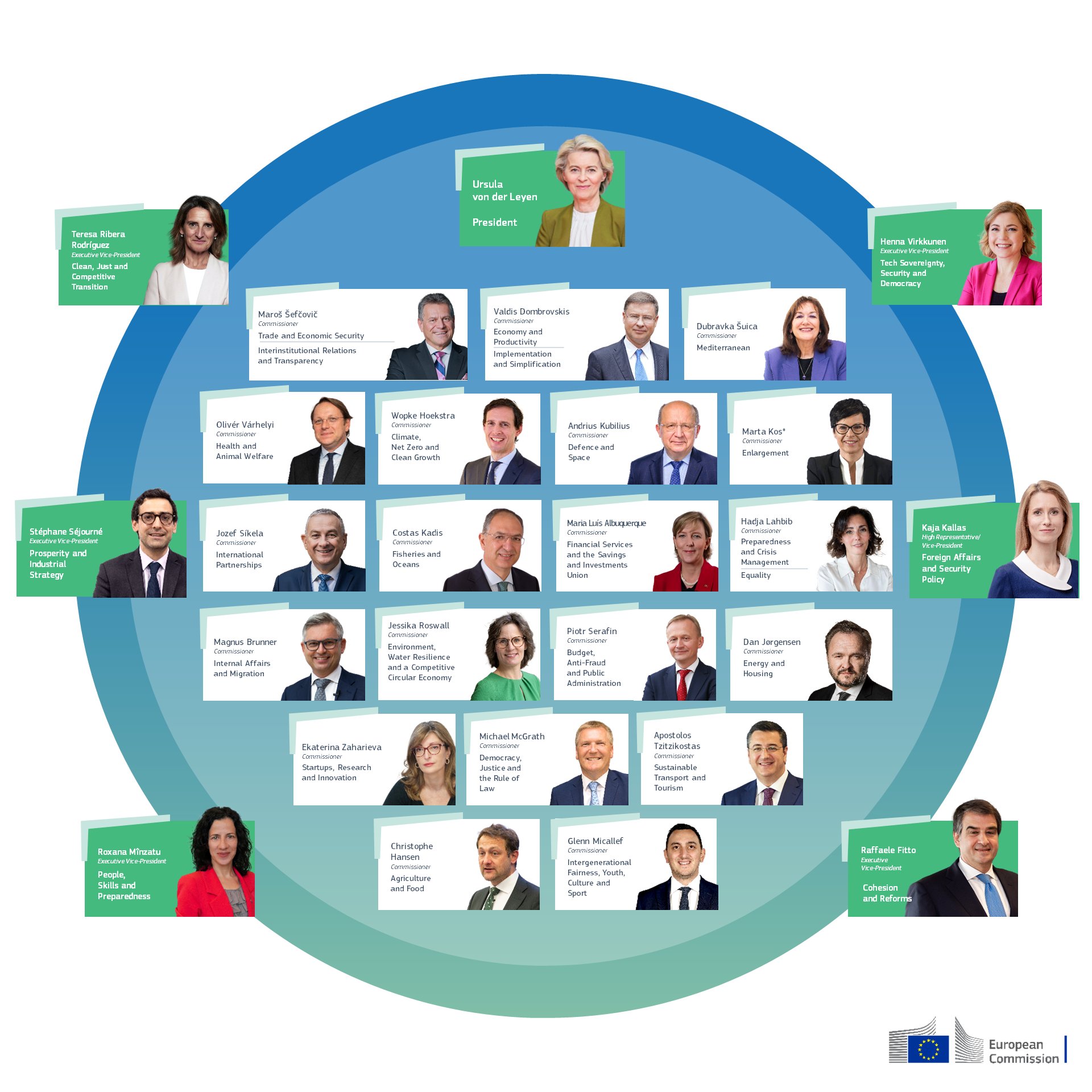References to education, science and technology are scattered across many of the new commissioner portfolios announced today

Photo credits: European Union
Today is the day. EU Commission President Ursula von der Leyen has announced her new college of commissioners and one thing is clear: a third Bulgarian woman is likely to serve as the commissioner for research and innovation.
But research and innovation policy will not be limited to Ekaterina Zaharieva’s portfolio – we have a full story on that here. Von der Leyen presented a plan that would spread science and technology across many of the remaining 26 job titles published today.
To help our readers navigate all that, Science|Business has produced an overview of these policies and who will be responsible for their implementation:
Teresa Ribera Rodríguez, executive vice president of a Clean, Just and Competitive Transition
According to the letter she received from von der Leyen, Ribera Rodríguez will help SMEs and small midcaps “to address risks of killer acquisitions from foreign companies seeking to eliminate them as a possible source of future competition”.
She will also be involved in implementing the future European Competitiveness Fund, to ensure coherence between the fund and state aid policy. In addition, she will work with member states to gather “swift proposals” for important projects of common interest in strategic technology sectors.
Henna Virkkunen, executive vice president for Tech Sovereignty, Security and Democracy
Virkunnen will help Zaharieva set up an artificial intelligence research council and oversee increased efforts by the EU to boost investment in the next wave of frontier technologies, including supercomputing, semiconductors, the Internet of Things, genomics, quantum computing and space technology.
Virkunnen will also develop a “long-term EU quantum chips plan”, as suggested by Mario Draghi in his report on EU competitiveness.
Stéphane Séjourné, executive vice president for Prosperity and Industrial Strategy
Séjourné will have to come up with a proposal for a Clean Industrial Deal within the first 100 days of his mandate, focused on decarbonisation, green technologies and incentivising investment.
He will also work with other commissioners on an Industrial Decarbonisation Accelerator act, which would help Europe’s private sector develop, produce and diffuse clean tech. He will also work on the new important projects of common interest.
In addition, Séjourné will contribute to work on the European Competitiveness Fund to ensure the EU invests “in the innovation and technologies that will shape our economy and drive our transitions,” the mission letter reads.
Roxana Mînzatu, executive vice president for People, Skills and Preparedness
Mînzatu will work on the European Education Area, with the aim of coming up with an EU-wide approach to skills and learning mobility. She will also work on strengthening Erasmus+ and the European Degree.
Olivér Várhelyi: commissioner for Health and Animal Welfare
The Hungarian commissioner is expected to propose a Critical Medicines act which would address severe shortages of drugs and medical devices. He will also lead the work on the new European Biotech act, a regulatory framework to enable innovation in health technology assessment and clinical trials.
Várhelyi will pick up the pharmaceutical regulation file and cooperate with the Parliament and the EU Council to conclude the reform and follow-up on its implementation.
Wopke Hoekstra, commissioner for Climate, Net Zero and Clean Growth
The Dutch commissioner has the job of setting out a Clean Industrial deal, focused on decarbonisation and clean technologies and will also support the implementation of the Innovation Fund to invest in clean technologies and projects with European added value.
Andrius Kubilius, commissioner for Defence and Space
The Lithuanian commissioner is expected to present a white paper on the future of European defence, with the aim of creating a single market for defence products and services.
He will work with member states and in close coordination with NATO on defence projects of common European interest and look at ways to reinforce the European Defence fund, the EU’s main defence research programme.
Kubilius will also lead the Commission’s work on a proposal for a EU space law.






 A unique international forum for public research organisations and companies to connect their external engagement with strategic interests around their R&D system.
A unique international forum for public research organisations and companies to connect their external engagement with strategic interests around their R&D system.